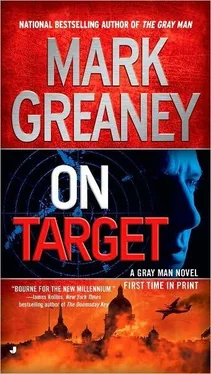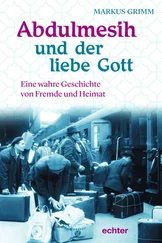Mark Greaney - On target
Здесь есть возможность читать онлайн «Mark Greaney - On target» весь текст электронной книги совершенно бесплатно (целиком полную версию без сокращений). В некоторых случаях можно слушать аудио, скачать через торрент в формате fb2 и присутствует краткое содержание. Жанр: Триллер, на английском языке. Описание произведения, (предисловие) а так же отзывы посетителей доступны на портале библиотеки ЛибКат.
- Название:On target
- Автор:
- Жанр:
- Год:неизвестен
- ISBN:нет данных
- Рейтинг книги:3 / 5. Голосов: 1
-
Избранное:Добавить в избранное
- Отзывы:
-
Ваша оценка:
- 60
- 1
- 2
- 3
- 4
- 5
On target: краткое содержание, описание и аннотация
Предлагаем к чтению аннотацию, описание, краткое содержание или предисловие (зависит от того, что написал сам автор книги «On target»). Если вы не нашли необходимую информацию о книге — напишите в комментариях, мы постараемся отыскать её.
On target — читать онлайн бесплатно полную книгу (весь текст) целиком
Ниже представлен текст книги, разбитый по страницам. Система сохранения места последней прочитанной страницы, позволяет с удобством читать онлайн бесплатно книгу «On target», без необходимости каждый раз заново искать на чём Вы остановились. Поставьте закладку, и сможете в любой момент перейти на страницу, на которой закончили чтение.
Интервал:
Закладка:
He'd climbed through the hatch that they'd left open on his orders, relayed through Sid, through the FSB, and then on to the Rosoboronexport crew. When he made his way inside the dim cargo cabin, he found all the gear he'd requested cinched to a mesh bench. It was the same pack he'd had with him on his earlier flight, with a few new items, equipment crucial to the change in his operation necessitated by his three-day visit to Darfur. The crew of the Antonov had not bothered to even come out of the cockpit to check and make sure he'd made it in, that he had everything he needed.
These Russians didn't give a shit about him or his job. They were probably annoyed about the unusual flight plan they were ordered to fly, were certainly pissed about the unusual maneuver they'd have to execute, and they would no doubt blame him for the FSB heavies getting in their business and telling them how to do their job.
As far as the man in the back of their plane right now, they made it 100 percent clear with the open hatch left unattended and the lack of a welcoming party when he boarded. They didn't want to know him.
And that worked for a guy like the Gray Man.
He'd spent the first hour of the flight obsessively checking and rechecking all the equipment. He didn't trust these Russians with his life, so he didn't trust them to properly check the devices he'd need to keep himself alive and fulfill his objectives of the next forty-eight hours. Once he was satisfied everything was in working order, he sat back down on the bench and tried to relax.
Court's brain soon drifted off mission. He wanted a pain pill, but he was in no pain. His adrenaline was up, it stayed high when he was about to do this sort of thing, but still, he thought, he worried, he fretted now more than earlier in his career.
He'd once been a well-oiled machine, back with the SAD and before.
Somehow the Canadian woman had gotten inside him. He'd known better than to engage her in conversation, to try to justify himself to her, but there was something about her that got under his skin in ways both positive and negative. He would never admit to respecting her-her line of work and sanctimony he absolutely did not agree with-but he did not meet many real people out here in the black, on the dark side. And even though she was likely some tree-hugging, do-gooding, we-are-the-world-singing, flipper-fucking fool, she was, at least, a fool who went toe to toe with the real dangers of the world.
The aircraft began a steep descent, sending his stomach up into his chest, and Court unlatched the buckle on his seat belt.
Ellen Walsh pushed some of Gentry's buttons during their day together, and even though this woman was likely right now preparing an indictment and opening an investigation and putting all of her energies into tracking him down and seeing that he was thrown in some cage somewhere, Court couldn't say that he did not want to see her again.
He shook his head. Shit man, snap out of it.
The Antonov leveled out quickly, causing Court's stomach to lurch in the other direction. With a metallic motorized cranking sound, the rear loading hatch opened behind him. Cold night sky appeared out past the red cabin lighting. The whoosh of air was audible, painfully loud even, but barely felt, as the aerodynamics of the craft kept the wind outside the cabin.
Yes, he'd once been a well-oiled machine.
Court stood, fumbled with all the equipment strapped to his body, and began lumbering towards the night.
He was still a machine, he told himself, and he believed it. He knew it. He was just a machine that needed a bit more oil than in the old days.
The Gray Man gave a quick test pull to the gear on his chest, between his knees, and on his back, walked slowly down the ramp, and tumbled out into the black sky.
The night air was cool here near the east coast of the Sudan; gentle breezes pulled in from the ocean saw to that. This area of the Red Sea Hills, the topographical anomaly to the west of Port Sudan and to the northwest of Suakin, rose one thousand feet out of the Sahel, a rocky brown disfigurement to the otherwise flat landscape.
At half past midnight, no light shone on the hillside save for a sliver of moon, not a single electrical source for a dozen miles in any direction, but these hills were not uninhabited. The Bejas and the Rashaidas lived out here. They tended goats or small farms on the plateaus, traded at the souks in Port Sudan or Suakin, subsistence-farmed where they could, lived off the hard earth, and did their best to stay out of the way of the Arabs, the tribes that had the power and led the government of Sudan.
There was once gold in these hills. Since pharaonic times gold ore had been sought out and mined and transported overland to Alexandria and Cairo. The mining of precious metals in the area had all but dried up, but gypsum and iron ore and limestone were still scratched out of the rock and sent away to places that actually had a need for the raw materials used in constructing cities and buildings.
It certainly wasn't needed here.
There'd been a war a few years back. Like the war in southern Sudan and the war in Darfur, the eastern minority tribes once tried to throw off the yoke of oppression. They were poorly organized, all but unfunded, and slapped into submission in what had become little more than a footnote after the bigger, badder civil conflicts at the other ends of the large nation.
Now, on a cool, dark, quiet hillside on the eastern edge of a plateau that overlooked the flat coastal plain that ran twenty miles to Port Sudan and then to the waterline itself, there was nothing but rail-thin goats, left unattended during the night by Beja tribesmen. Many of the animals slept standing, a few chewed lazily at tufts of green grass.
A gray Sahelian goat bleated loudly. Another followed, and then another. Soon a chorus of goats called out together, and then the tiny herd parted, ran out from the center, leaving an opening on the grassy hillside.
A large brown backpack crashed into the vacated space, bounced, and rolled down the hill, whipping a twenty-five-foot cord behind it.
And two seconds later a man in dark clothing landed on both boots, seemed to find his balance after a short skid, but the parachute above his head deformed and then re-formed in front of him, sucked in the draft down the hill towards the flatlands, and it pulled him off balance. He lost his footing on the hill, pitched forward, yanking and pulling on the leads to the canopy as he tumbled.
Twenty meters down the hill he came to rest. The canopy deflated and was hauled in, the bleating of the goats subsided, and their community re-formed again as if this odd insult had never occurred.
Gentry sat on his butt, hugged the fluttering canopy to his chest, and looked around in the dark.
"Shit," he said softly to no one, and then he doubled over, leaned on his left elbow, and vomited onto the dry grass.
Once he collected himself, swigged water from a bladder in his pack, spat it out to perfunctorily clean out his sour mouth, he looked off into the distance. He faced east, and to the northeast he could see the lights of Port Sudan, twenty some odd miles distant across the coastal plain. He turned to his right a bit, towards the south. He knew Suakin was out there in the dark, twenty-five or so miles from him now. He needed to get there as soon as possible.
He would have liked to be there already, reconnoitering the area, using the actual terrain instead of a map to fine-tune his plan.
Court stood, found his left butt cheek to be sore and bruised and stiffening, but he ignored it. There were pain meds in his pack. Lots of them. He'd stuffed them deep in a feeble battle with himself, wanted to go as long as possible without taking them.
The battle worked for now; he did not rip open the bag to dig for them. Instead he stood, spent several minutes among the thin goats, hiding his parachute and the other bags he no longer needed in the breeze-swept grasses and thatched bushes on the hillside. He changed his clothes, donned simple dark blue trousers and a dark green short-sleeved shirt, both purchased the day before in Al Fashir. He planned on using two forms of cover. The Rashaidas, a lighter-skinned Arab common in the area, often eschewed long robes and cloaks for clothing more conventional to Westerners. And if he had to get up close and personal, he knew no one would believe him to be a Rashaida; no native Arabic speaker would buy for a second his piss-poor command of the language, and what Arabic he did know was an altogether different dialect. So his plan was to avoid close contact if possible, but if not possible, he would claim to be a Bosnian Muslim who'd been studying Arabic in Egypt but had decided to complete the hajj, the fifth pillar of Islam, the Muslim's required pilgrimage to Mecca in Saudi Arabia. Suakin was not known for much, but it was known, among East African Muslims, anyway, as the port where one could find ferry embarkation across the Red Sea to Jeddah, from where one could make his way on to Mecca. Court had even picked up a simple prayer rug in the souk in Al Fashir to back up this story.
Читать дальшеИнтервал:
Закладка:
Похожие книги на «On target»
Представляем Вашему вниманию похожие книги на «On target» списком для выбора. Мы отобрали схожую по названию и смыслу литературу в надежде предоставить читателям больше вариантов отыскать новые, интересные, ещё непрочитанные произведения.
Обсуждение, отзывы о книге «On target» и просто собственные мнения читателей. Оставьте ваши комментарии, напишите, что Вы думаете о произведении, его смысле или главных героях. Укажите что конкретно понравилось, а что нет, и почему Вы так считаете.












